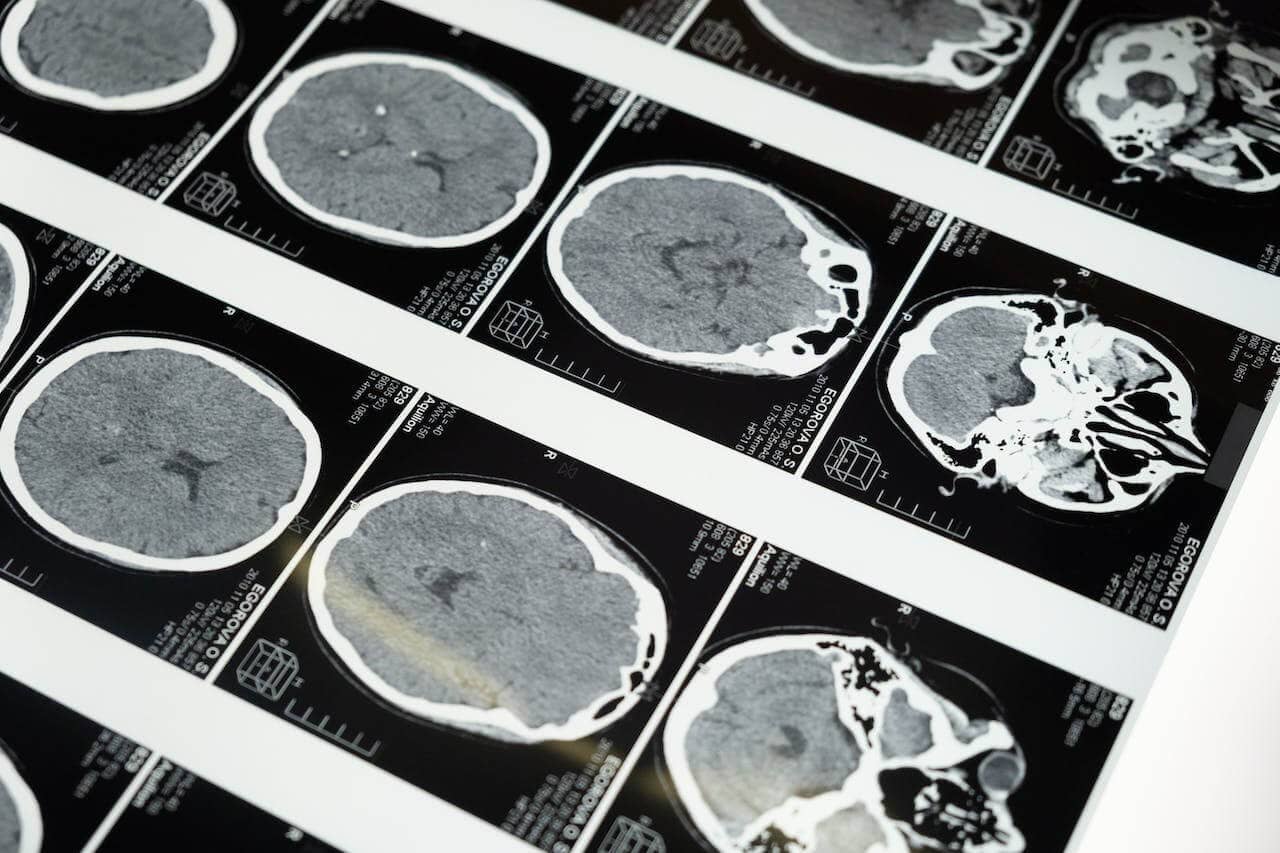In the realm of medical mysteries, the human brain remains one of the most enigmatic and vital organs. This complex three-pound wonder holds the key to our thoughts, emotions, and bodily functions. Unfortunately, it’s also one of the most susceptible to injuries, which can have profound and life-altering effects.
Unravelling the Complexity: What is the Diagnosis of a Brain Injury?
When it comes to brain injuries, understanding the diagnosis is a crucial first step towards effective treatment and recovery. But how does one diagnose the various types of brain injuries that can occur? The process involves a combination of clinical assessment, imaging techniques, and, in some cases, specialised tests. Let’s dive into the intricate world of diagnosing different types of brain injuries, covering the three main categories of head injuries as defined by the medical community.
Traumatic Brain Injuries (TBIs)
Traumatic Brain Injuries, commonly referred to as TBIs, are perhaps the most widely recognized form of brain injury. These injuries occur due to external forces affecting the head. From mild concussions to severe brain contusions, TBIs can manifest in various forms, each requiring a distinct diagnostic approach.
The initial assessment typically begins with a thorough medical history, where the patient’s reported symptoms and the circumstances of the injury are essential factors. For instance, if someone falls and hits their head, the healthcare provider would inquire about the height of the fall and any loss of consciousness.
Clinical evaluations involve assessing vital signs, neurological examinations, and testing for cognitive and motor functions. These evaluations help medical professionals gauge the severity of the injury. Imaging studies such as CT scans and MRIs are commonly employed to visualise any structural damage to the brain, like haemorrhages or contusions.
In cases of mild TBIs, such as concussions, where structural damage might not be immediately apparent, neuropsychological tests come into play. These tests assess cognitive functions, memory, and problem-solving abilities. For example, a patient may be asked to recall a series of words or numbers to evaluate memory impairment.
Non-Traumatic Brain Injuries
Non-traumatic brain injuries encompass a wide range of conditions that affect the brain without any external force or injury to the head. These injuries can result from various causes, such as infections, strokes, or tumours. Diagnosing non-traumatic brain injuries can be more challenging due to their diverse nature, but the diagnostic process often begins with a comprehensive clinical evaluation.
In the case of strokes, a patient’s medical history and risk factors are pivotal in diagnosis. For example, a person with high blood pressure, smoking habits, or diabetes may be at a higher risk of a stroke. Neurological examinations can reveal the extent of damage, and imaging techniques like CT and MRI scans are instrumental in identifying ischemic or hemorrhagic strokes.
Infections of the brain, such as encephalitis or meningitis, require specialised tests. A lumbar puncture, commonly known as a spinal tap, is often performed to analyse cerebrospinal fluid for signs of infection. This diagnostic procedure involves inserting a needle into the spinal canal to collect a sample of the fluid surrounding the brain and spinal cord.
Brain tumours can be diagnosed through a combination of medical history, neurological exams, and imaging. MRI and CT scans are used to identify the presence, location, and size of tumours. In some cases, a biopsy may be required to determine the tumour’s type and grade, which is crucial for treatment planning.
Acquired Brain Injuries
Acquired brain injuries are those that occur after birth but are not related to trauma or other medical conditions. They often result from events like oxygen deprivation, toxic exposure, or metabolic disorders. Diagnosing acquired brain injuries involves a multifaceted approach, starting with a detailed medical history.
Hypoxic-ischemic brain injury, which occurs due to oxygen deprivation, can lead to devastating consequences. In cases of newborns who experience birth asphyxia, the diagnosis involves monitoring the baby’s vital signs, blood gases, and assessing clinical signs of distress. Imaging techniques like MRI may reveal any structural damage to the brain.
Toxic exposure, such as carbon monoxide poisoning, requires consideration of the patient’s exposure history. Symptoms like confusion, headache, and nausea can be indicative of such injuries. Blood tests are often conducted to measure the levels of carbon monoxide in the bloodstream.
Metabolic disorders that affect the brain, like Wilson’s disease, are diagnosed through a combination of clinical evaluation and genetic testing. The patient’s symptoms, along with family history, can lead to a suspected diagnosis, which can be confirmed through genetic testing to identify mutations in specific genes related to the disorder.
While the diagnostic process for acquired brain injuries can be complex and multifaceted, a combination of clinical assessments, medical history, and specialised tests is the foundation for accurate diagnosis.
The Importance of Early Diagnosis
Diagnosing brain injuries promptly is of paramount importance because early intervention can significantly impact a patient’s prognosis. Whether it’s a traumatic brain injury, a non-traumatic brain injury, or an acquired brain injury, a timely and accurate diagnosis can lead to more effective treatment strategies and better outcomes.
Moreover, the diagnostic process may involve a multidisciplinary approach, with neurologists, neurosurgeons, radiologists, and other healthcare professionals working collaboratively to assess and diagnose the injury. This teamwork ensures that each aspect of the diagnosis is thoroughly considered and that the most suitable treatment plan is developed for the patient.
Making a Serious Injury Claim with National Claims
When it comes to brain injuries, the aftermath can be overwhelming, both for the affected individuals and their families. The road to recovery often involves not only medical treatment but also financial support to cover the costs of care and rehabilitation. At National Claims, we understand the challenges that follow a serious injury, and we are here to guide you through the process of making a claim to ensure you receive the compensation you deserve.
Why Choose National Claims
At National Claims, we have a team of dedicated experts with extensive experience in handling brain injury claims. We understand the physical, emotional, and financial toll that such injuries can take on individuals and their loved ones. Our mission is to provide compassionate, professional, and comprehensive support throughout the entire claims process.
Expertise in Brain Injury Cases
Our team of legal professionals specialises in brain injury cases. We are well-versed in the complexities of diagnosing and treating different types of brain injuries, and we leverage this knowledge to build strong cases on behalf of our clients.
Tailored Legal Counsel
No two brain injury cases are alike, and we recognize the unique challenges that each individual faces. We provide personalised legal counsel to ensure that your case is tailored to your specific needs and circumstances.
Maximised Compensation
Our goal is to secure the maximum compensation for our clients. We work diligently to assess the full extent of your damages, including medical expenses, lost wages, and pain and suffering, to ensure that you receive fair and just compensation.
The Claim Process
Making a serious injury claim with National Claims is a straightforward and transparent process. We are committed to guiding you every step of the way.
Initial Consultation
Your journey with National Claims begins with an initial consultation. During this meeting, we will discuss your case, review your medical records and diagnoses, and gather essential information to understand the circumstances of your brain injury. This consultation is free of charge and comes with no obligations.
Building Your Case
Once you decide to move forward, our team will start building your case. We will work closely with medical experts to gather supporting documentation that demonstrates the severity and impact of your brain injury. This may include medical reports, imaging scans, and expert opinions.

Conclusion
Brain injuries can have a profound impact on a person’s life, affecting not only their physical and emotional well-being but also their financial stability. The diagnosis and treatment of these injuries are complex processes that require specialised expertise. Whether your brain injury is traumatic, non-traumatic, or acquired, early and accurate diagnosis is crucial for effective treatment.
At National Claims, we recognise the challenges that individuals and their families face when dealing with brain injuries. Our team of legal experts is dedicated to providing support and guidance throughout the claims process. We understand the intricacies of brain injury cases and work to secure the maximum compensation for our clients.
By choosing National Claims, you are choosing a partner with a proven track record of success in handling brain injury claims. We are committed to tailoring our legal counsel to your unique circumstances and needs. Our goal is to provide compassionate, professional, and comprehensive support, ensuring that you receive the compensation you deserve.
In the complex and often challenging journey of making a serious injury claim, National Claims stands by your side. We aim to simplify the process, working diligently to secure a fair and just resolution for your case. Your well-being and financial security are our top priorities. With National Claims, you can trust that you are in capable hands as we pursue the compensation you need to rebuild your life after a brain injury.
Start your claim today by contacting us and speaking to one of our claims specialists.
Click below to see why we are one of the most trusted claims management companies in the UK.

We’re proud of our excellent customer reviews
We thrive on delivering exceptional service and ensuring our clients’ satisfaction. Don’t just take our word for it. Check out some of our independent reviews to see what our clients have to say.
Excellent

This firm is excellent, they sorted out my car pay out and injury claim very fast, they always communicate with you all the time.

My accident case was dealt with confidence and with great result of the outcome, especially James kept me informed all the time.

I was very impressed at the way my inquiry was treated. I was listened to attentively and everything I needed to know was explained to me.






